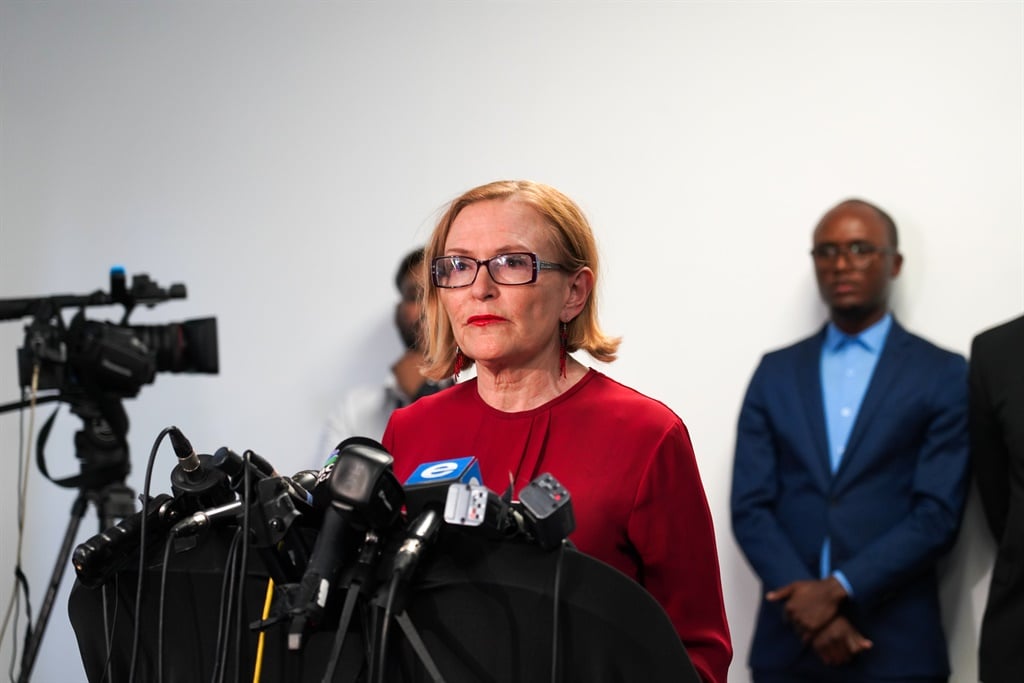
Helen Zille grew the DA from a parochial, provincial party into a national powerhouse that doubled its support in a decade. For the first time, the party attracted serious black leaders and expanded its footprint into townships. But like many liberation leaders-turned-dictators, Zille couldn't let go of the power. So she took down the house of cards with her, writes Adriaan Basson.
It is hard to think of a modern day South African politician who has done more to soil their legacy beyond redemption than Helen Zille.
Jacob Zuma doesn't count; he didn't have a reputation to start with.
But history should have been kind to Zille. The activist-journalist-turned-politician transformed a small, white, liberal party into a serious South African powerhouse that was governing a province and a city, steadily on its way to achieving 30% at the national polls.
Zille's track record as activist and journalist was solid. A fierce opponent of apartheid, her words and deeds reflected someone with strong morals and a backbone.
Under Zille as leader, the Democratic Alliance became acceptable to black South Africans. It was no longer strange to see a black woman or man wearing a DA t-shirt in rural towns, poor neighbourhoods or city townships.
Joe Seremane was no longer the only black person in DA town.
Zille's DA was a far cry from the "fight back" era of Tony Leon and his loyal advisor, Ryan Coetzee. If Leon consolidated white Afrikaners behind the DA, Zille opened the gates to thousands of black supporters and leaders to occupy the official opposition. It was the right thing to do.
Although she now says it was her biggest mistake, Zille made a concerted effort to recruit and fast-track black leaders in the DA.
In politics numbers count and Zille realised, correctly so, that the party needed black leaders to take the DA's support to the next level.
I vividly remember speaking to Zille on the night the 2011 local government election results were announced. The DA received over 3-million votes, taking the party over the 23% national mark. "The next leader of the DA will be black", she said without hesitation, with Lindiwe Mazibuko in earshot.
And so it was that the 31-year old was elected official leader of the opposition, with Zille's blessing and assistance. Three years later Mazibuko made a spectacular exit from the party after she and Zille had a blow-out about the party's stance on BEE and Employment Equity.
In her very good biography Not Without a Fight, published in 2016, Zille wrote how she rued fast-tracking Mazibuko into a leadership position in the DA.
"I was torn. I had enormous respect for Mmusi [Maimane], who was a natural, but I was also acutely aware that Lindiwe had not been well served by such a rapid rise to the top slot in parliament, a premature move that had undoubtedly set back her career. I did not want this to happen to a second highly talented young politician."
After agreeing to let Maimane take over as parliamentary leader from Mazibuko in 2014, Zille told her inner circle: "don't fuck it up. Our party can't survive another plane crash."
A year later, Maimane took over from Zille as party leader and two years later he banned her from participating in any DA activities after she refused to apologise for a tweet stating that the legacy of colonialism was not only negative. Zille remained Western Cape premier, but the relationship between them grew increasingly tense, even hostile.
The colonialism tweet became Zille's hallmark and a serious impediment for the DA's growth under black voters. Zille refused to accept that the tweet was interpreted by the vast majority of South Africans as a slap in the face of millions of black South Africans who still carry the scars of colonialism and apartheid. Talking about the positives of colonialism while the majority of black South Africans remain poor and unemployed undermined every single thing Zille had said and done in her career to challenge apartheid.
It illustrated her tone-deafness and inability to read and respect the national mood. Something had changed in her and Zille became obsessed with fighting racial nationalism on Twitter. I believe that her worldview was severely influenced by the vicious interactions on social media, often fuelled by paid bot-accounts to create racial tension or achieve particular political outcomes.
Zille lost touch with reality and Maimane and the DA rode out her term as premier that ended in May this year.
Zille left politics and joined the conservative Institute for Race Relations, that openly campaigns for an end to Employment Equity and Affirmative Action. The IRR had become a lobby group for the "classic liberal" faction in the DA, closely linked to Leon and Gavin Davis, the party's former head of communications who now heads-up Leon's company Resolve Communications.
The DA's poor performance in the 2019 national and provincial elections opened a gap for Zille to return to the party's mainstream.
After veteran MP James Selfe took the fall for the poor results and resigned as chair of the federal council, the "classic liberals" regrouped and decided to put up former DA MP and ex-IRR staffer Gwen Ngwenya as their candidate against Athol Trollip, who was Maimane's preferred replacement. It became clear that Ngwenya would not win the day, and the "classic liberals", who want the party to do away with any race-based legislation and regulations, lobbied Zille to return.
She beat Trollip by 15 votes and the rest is history.
In Zille's words, the plane had crashed again, and she had no small part to play. She was probably right in her biography, that the DA will not survive again.




 Publications
Publications
 Partners
Partners






















